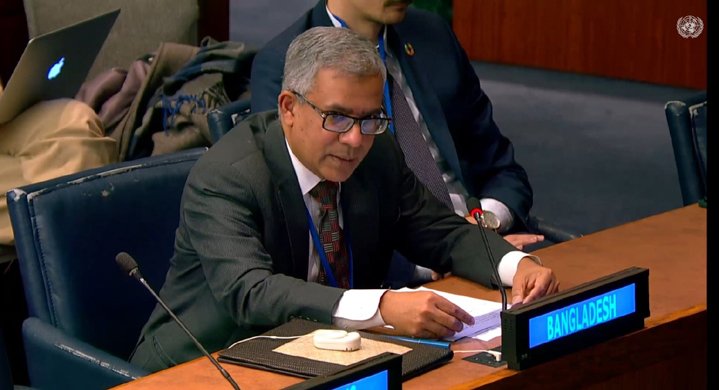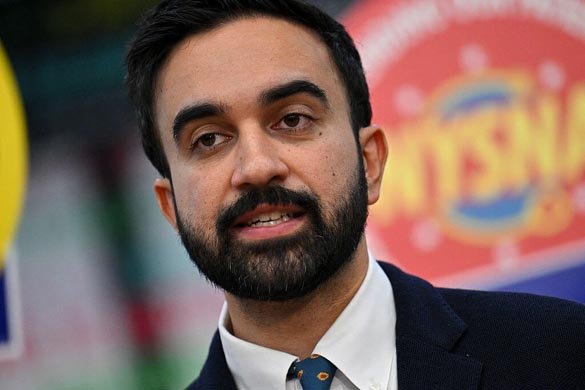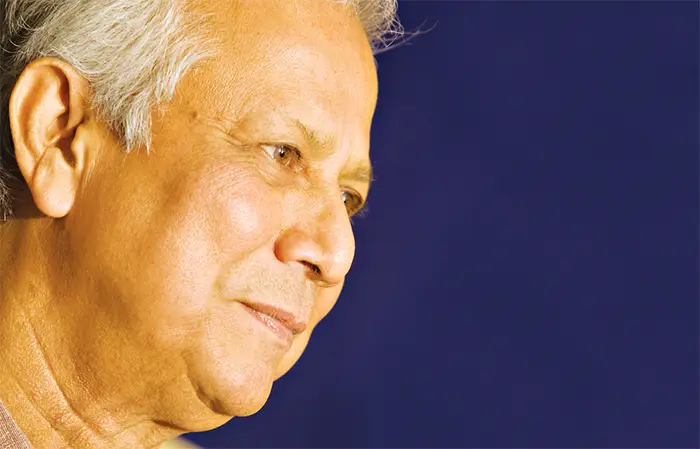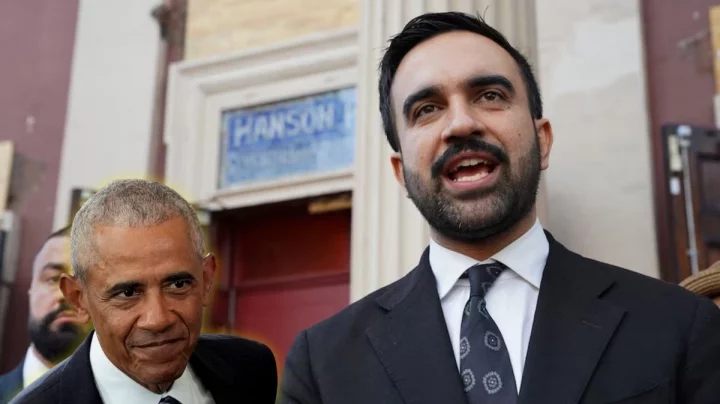Tech CEO’s killer may have been scared off by visiting relative: cops

- প্রকাশের সময় : ১০:০৯:১৮ পূর্বাহ্ন, শুক্রবার, ১৭ জুলাই ২০২০
- / ১৫০ বার পঠিত
By Joe Marino, Larry Celona, Tina Moore and Steven Vago
The dapper butcher who murdered and dismembered a tech CEO in his Manhattan apartment may have been spooked by the victim’s cousin — fleeing just before she discovered the gory scene, sources said Wednesday.
Worried because she hadn’t been able to reach him since Monday, victim Fahim Saleh’s cousin went to his $2.25 million Lower East Side apartment on East Houston Street at about 3:30 p.m. Tuesday.
When she buzzed Saleh’s seventh-floor apartment, the killer may still have been inside, sending him fleeing down a flight of stairs and out a service door onto Suffolk Street — while the cousin was riding the elevator up, sources said, outlining one theory.
Moments later, the cousin entered to find the hellish handiwork.
Saleh’s torso was found decapitated, all four limbs severed with surgical precision — arms at the shoulders, legs below the knees — and stuffed into plastic bags, sources said.
An electric saw was nearby — still plugged in — as was a stash of cleaning supplies.
There were no telltale signs of a struggle, nothing apparently stolen, sources said.
One source described the murder as “professional,” with the blood confined to one corner of the room, tracing a nearly perfect outline around the torso.
A source noted that when police arrived on the scene, the blood immediately around the torso hadn’t yet blackened, suggesting that Saleh, 33, had only recently been dismembered — likely within the last hour of the more than 25 hours the assassin apparently spent inside the apartment.
The killer remained at large Wednesday, as sources revealed more details about how he stalked his victim.

Inside the life of the tech CEO found decapitated in his NYC apartment
Surveillance video from the building lobby shows Saleh enter the elevator at about 1:40 p.m. Monday, followed closely by the suspect, who was carrying a bag, clad in all-black and hooded, yet smartly dressed, sources said.
The killer wore a “ninja-like” hood and a “dark suit, fashionable cut,” according to one source.
Saleh used a key fob to send the elevator to the seventh floor, while the suspect faked selecting another floor, sources said.
There was a brief verbal exchange, then when the doors of the elevator — which let out directly into Saleh’s apartment — opened, the attacker followed him inside, sources said.
The last image captured by the surveillance camera before the elevator doors closed was the killer zapping Saleh with a Taser, sources said.
“He was an extraordinary boy. He always had a beautiful smile on his face and he was a wonderful person,” Shah Ahmed, a relative of Saleh through marriage, told The Post outside a family home in The Bronx. “I’m praying to Allah that He gives him the highest level of heaven.”
Saudi-born to Bangladeshi parents but raised in upstate Rochester, NY, Saleh was something of a tech wunderkind, co-founding his first company — the seven-figure-earning WizTeen, a network of sites for teens on social media — when he was just 16 himself, according to his LinkedIn page.
In 2009, he founded mobile-app developer TapFury, which created popular crank-calling program PrankDial.
But as Saleh matured, so too did his focus.
In 2015, he founded Pathao, a start-up dipping its toes into everything from transportation to deliveries to electronic payments in his parents’ native Bangladesh — valued at more than $100 million, according to his LinkedIn.
He also said he was an investor in Picap, Colombia’s largest motorcycle ride-sharing company, and one friend described Saleh as “the Elon Musk of the developing world.”
But there were also bumps in the road along the way, some continuing to Saleh’s death.
In 2017, he was named as a defendant in a $10 million lawsuit filed in New Jersey by Kirk Eady, a former deputy director of Hudson County, NJ’s correctional facility, court filings show.
Eady was criminally convicted, sentenced to 21 months behind bars and lost his job after using PrankDial to listen to and record colleagues badmouthing him.
In the suit — still pending — Eady claimed that PrankDial did not make clear that it was illegal to surreptitiously tape calls in New Jersey and other “two-party-consent states” in which both callers most agree to be recorded.
Saleh also faced recent troubles with his latest pet project, the Nigerian-based motorcycle ride-sharing service Gokada.
The burgeoning business was dealt a blow in February when it was banned in the capital city of Lagos over safety concerns.
“I’m never gonna give up, because that’s the true attribute of an entrepreneur, never giving up,” Saleh said in a five-minute monologue posted to his YouTube account after the ban. “They’re the ones who bring the vision, they’re the ones who bring the passion.”
Authorities had not identified a suspect or concrete motive in Saleh’s slaying as of late Wednesday, but sources said that they were digging into his companies’ finances for possible clues.
Ahmed said he was at a loss for who would have had it in for Saleh.
“To the best of my knowledge he doesn’t have an enemy in the world,” he said. “This is a big loss in our family, and he’s priceless.”
Additional reporting by Noah Manskar, Priscilla DeGregory and Aaron Feis






















